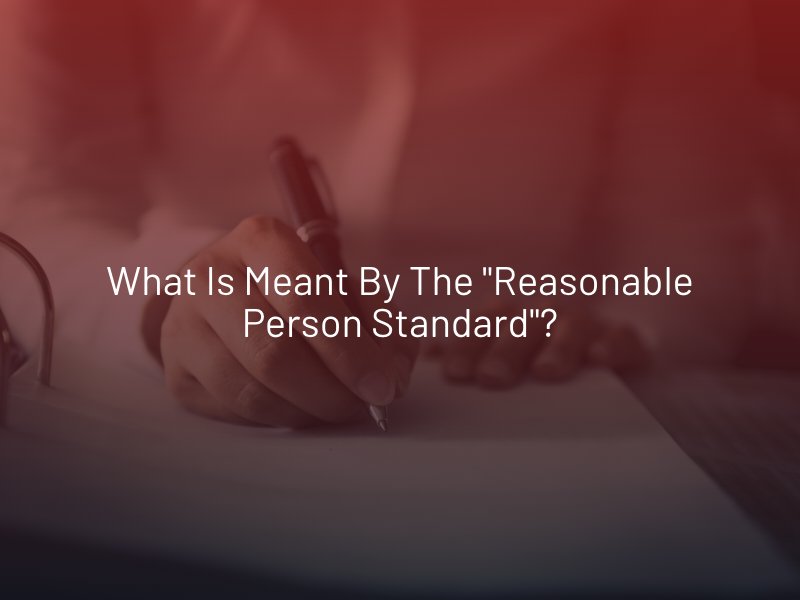What Is Meant By The “Reasonable Person Standard”?
To hold another party responsible for an injury caused by their negligence, you must be able to prove they did not behave how a reasonable person would have. As a result, the “reasonable person” standard weighs heavily on the outcome of a personal injury case.

The “Reasonable Person” Standard
The “reasonable person” standard is a hypothetical individual created to provide courts and juries an objective test by which to measure a person’s actions against to determine whether negligence has been committed. The theoretical “reasonable person” is not perfect but uses an appropriate amount of caution when approaching a situation then sensibly takes action. If the at-fault party did not exhibit the same degree of care that a reasonable person would in the same or similar case, the party is considered to have been negligent.
For example, a driver who speeds through a heavy pedestrian intersection did not behave as a reasonable person would have and would be considered negligent. A reasonably prudent driver in the same situation would slow down and come to a complete stop to allow pedestrians to cross safely and avoid an accident. Of course, there are times when an accident is unavoidable or reasonable errors are made under the circumstances, but the court or jury will decide that.
How the “Reasonable Person” Standard Affects Personal Injury Claims
The success of a personal injury claim hinges on a plaintiff’s (injury victim’s) ability to prove a defendant (at-fault party) was negligent. That involves demonstrating that the potential for injuries was foreseeable, meaning the defendant was aware that their actions could cause harm to another individual. In addition, the plaintiff must show how the defendant deviated from the “reasonable person” standard by establishing the alternative action that a reasonable person would have taken. A judge or jury will then decide whether the defendant failed to behave similarly to a reasonable person and whether they had the knowledge, awareness, and mental capacity to do so. Beginners, learners, or trainees in a particular skill are held to the same standard of care under the law, so the court does not make special allowances for them.
Exception to the “Reasonable Person Standard”
The only exception to the “reasonable person standard” is when it comes to minor children. Children do not have the maturity or foresight to anticipate the harm of their actions. Therefore, the court holds them to a modified standard and compares their conduct to other children of the same age who have similar experience and knowledge. It is important to note that there are some cases when the adult “reasonable person standard” may apply, for instance, if driving was involved.
Speak to a Las Vegas Lawyer
If you or a loved one has suffered an injury due to another’s failure to act as a “reasonable person,” you may be entitled to compensation. At Harris & Harris Injury Lawyers, our Las Vegas personal injury attorneys offer free consultations and can discuss your legal options. Call (702) 718-5501 or request one online today.